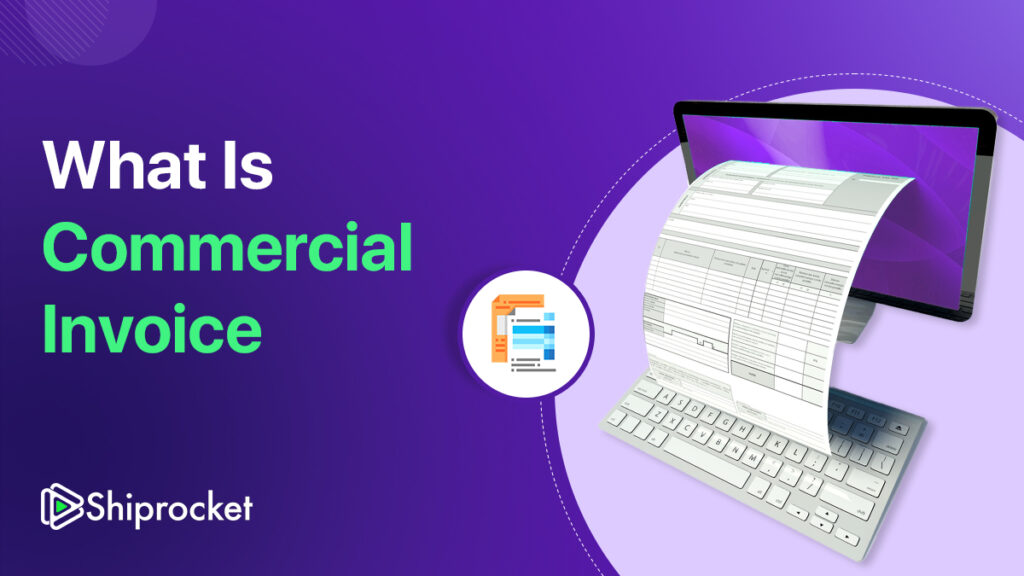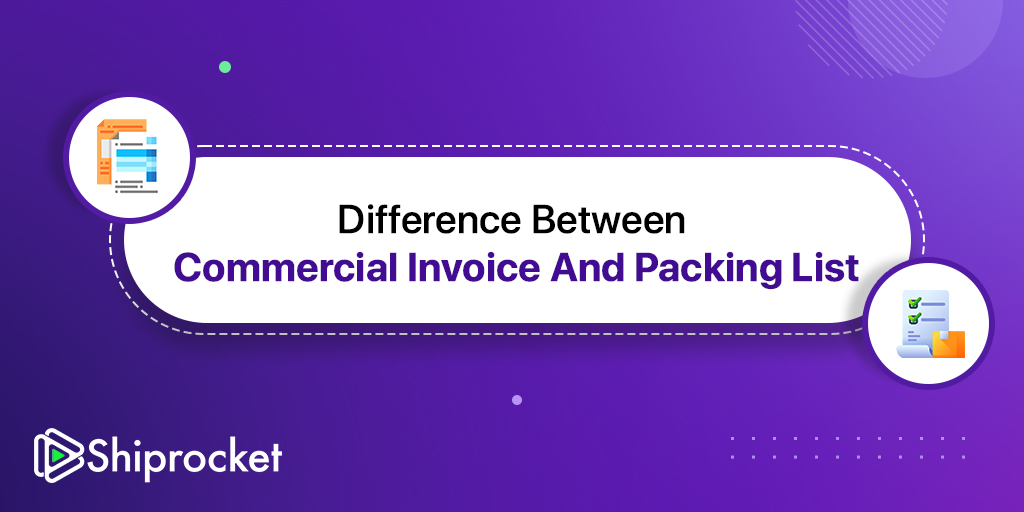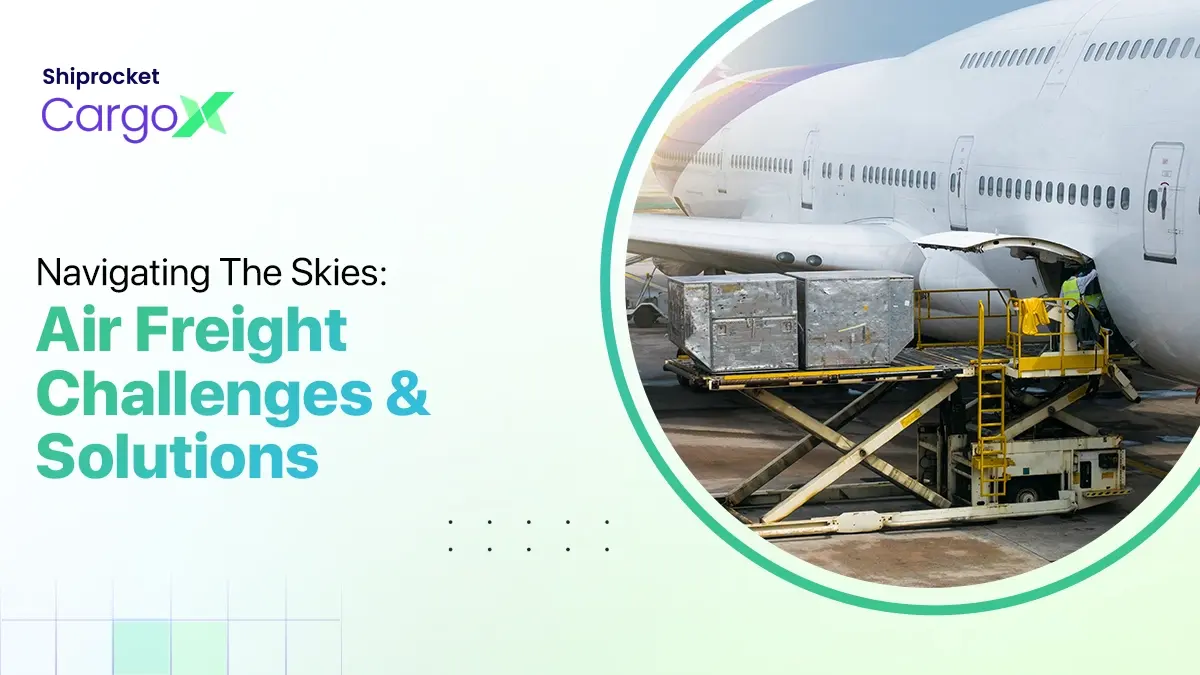Commercial Invoice: Key to Smooth Shipping
- What is The Format of a Commercial Invoice?
- What is the Importance of Commercial Invoices?
- How Do you Fill in a Commercial Invoice?
- How Do You Add the Commercial Invoice to Your Shipment?
- Which is the Best Commercial Invoice Template?
- How To Create a Commercial Invoice?
- When is a Commercial Invoice Required?
- Commercial Invoice Requirements
- Difference Between Commercial Invoice and Packing List
- Difference Between Commercial Invoice and Proforma Invoice
- Difference Between Commercial Invoice and Tax Invoice
- Commercial Invoice for Export
- What Are The Risks of Not Filling Out a Commercial Invoice?
- Conclusion
The business invoice is one of the most vital records in global commerce and ocean freight shipment. It is a legal document used as a contract and evidence of sale between the buyer and seller in an international transaction issued by the seller (exporter) to the buyer (importer). The business invoice does not convey ownership of the items or a title to those being sold, in contrast to the Bill of Lading. However, determining and assessing duties and taxes is necessary for customs clearance. The price(s), value, and quantity of the products sold are all specified in the business invoice. It should also include any trade or sale terms the buyer and seller have agreed upon before the transaction is completed.
It might also be necessary for financial transactions (such as when paying with a Letter of Credit) and might be required by the buyer’s bank to authorize the release of funds to the seller for payment. Information required on a commercial invoice for shipping. When filling out a commercial invoice, it is extremely important to ensure that information is clearly and accurately filled out.

What is The Format of a Commercial Invoice?
An essential document provided by exporters to importers that is equivalent to the seller’s bill is known as a commercial invoice. Importers use these invoices in addition to other relevant shipping documents to ensure that the shipments make it through the customs processes of the importing country. Commercial invoices are a mandatory document for air and ship freight. It contains the following information:
- Shipment details of the consumer
- Customs authority
- The agents involved
- Freight forwarding partners
- The relevant banking institutions
The commercial invoice does not include taxes, as transactions that are internationally bound are not subject to local taxes. Exporters must make sure that all details are added correctly in the right format so that the shipment can clear customs easily. The application of taxes on the shipment is determined by the precision of the commercial invoice. Hence, the key is to keep the commercial invoice precise and to the point.
What is the Importance of Commercial Invoices?
A commercial invoice is an important document that provides clarification regarding the transaction and associated payment terms of a shipment. Moreover, the customs departments use this document to determine the value of the goods shipped. The government also uses this document to verify the import and export processes. Here is a list of the other functions of a commercial invoice:
- Acts as a proof of sale
- Mainations records
- Ensures payment guarantee
- Avoids exploitation of the buyers
- Acts as a reminder for due payments
- Checks order accuracy
- Enables the raising of working capital requirement funds
How Do you Fill in a Commercial Invoice?
There is no standard format for filling out a commercial invoice. However, it must contain a bunch of fixed elements. Details relevant to the seller and buyer parties, shipment details, transaction details, etc., are some elements that must be present in the document. Here are a few elements explained in detail to help you understand a commercial invoice better:
- Description of the shipment: Describing the contents within a shipment is crucial. It is the most important part of a commercial invoice. It gives the authorities a complete overview of everything that you are shipping. You must do it individually for every element within your shipment.
- HS code or Community code: Every single item in your shipment must have its HS code. These codes classify your shipments to know where and how duties and taxes must be applied. If you do not know this code, you can look it up.
- Country of origin: This is crucial as it highlights where the goods were produced. You might need a CO document based on the shipping policy of the importing company.
- The incoterms: these are the standard agreement terms based on the international agreement. The incoterms bring clarity in the following aspects:
- Responsibility for the insurance, shipment, customs duties, etc., of the shipment
- Who is in charge of the transportation and duration of the journey
- Risk taker and costs of delivery
How Do You Add the Commercial Invoice to Your Shipment?
Generally, you will require three copies of your commercial invoice. One will be needed by the country you are exporting from, another will be the recipient country, and the last will go to the consumer. You will need to put two into the packing list envelope on the outside of the package, and the last one will be inside the package for the consumer.
Which is the Best Commercial Invoice Template?
There are plenty of commercial invoice templates and samples to choose from online. While there is no fixed commercial invoice format, most of the information required is very similar and standardised across all templates. Whichever template you choose, ensure that the following details are included:
Information related to the transaction:
- Invoice number
- Invoice date
- Order number
- Total sale amount
- Currency
- Payment instructions
Information related to the exporter and importer:
- Exporter/seller information (name, address, phone number, etc.)
- Exporter/seller’s tax identification number (e.g. VAT, EORI, etc.)
- Importer/buyer information (name, address, phone number, etc.)
- Importer/buyer’s tax identification number (e.g. VAT, EORI, etc.)
- Notify the party’s information
Information related to the shipping of the merchandise:
- Bill of Lading number
- Forwarding agent
- HS Code
- A clear description of goods (no. of packages, units, weight, etc.)
- Incoterm under which the merchandise has been sold
- Origin of merchandise
- Intercom
- Date of exportation, means of transport, and final destination
- Shipper’s signature

How To Create a Commercial Invoice?
There is no standard method to create a commercial invoice. However, here is an overview of the complete process for creating a typical invoice:
- Step 1 – Gathering all the information you need: Before creating your commercial invoice, you will need to find all the necessary information. This includes the type of goods being shipped, the quantity, weight, estimated value, and particulars of the shipment. The address of the seller and the buyer and any tax numbers are crucial information.
- Step 2 – Choosing a template: Several businesses have a pre-defined template to showcase their brand. This ensures that all the necessary information is present in the document.
- Step 3 – Fill out the necessary details: All the information you have gathered can now be put into the invoice. You can choose to type or write it. However, typing is the better option to increase legibility.
- Step 4 – Other documents: Depending on the nature of the shipment, additional documents will be needed, such as the bill of lading, packing list, export licenses, etc.
- Step 5 – Sending the invoice: Once you have completed the invoice, you will need to send it to the buyer and other parties, such as freight forwarders and customs officials.
When is a Commercial Invoice Required?
A commercial invoice is a document needed for all international trading. It is used in different scenarios. For instance, when you export goods from one country to another, you should give a commercial invoice to the consumer. If you are importing, you will need to get one from your supplier.
Customs authorities also need a copy of your invoice to clear your goods through their system. It is vital to make sure it has all the necessary details to avoid delays and rejections. Moreover, it helps with the record-keeping process in case of legal issues.
Commercial Invoice Requirements
For all Indians who indulge in international trade, commercial invoices are needed under the Customs Act of 1962. They are also governed by India’s foreign trade policy. The commercial invoices have the following requirements:
- Name, address, and relevant information of the shipper and the consumer
- A thorough document containing details of the shipment
- The price of the shipment
- The total value of the shipment
- The payment details and terms
Details for Shipping:
When you ship goods internationally, commercial invoices are a primary document required to facilitate trade. To ensure easy processing through the customs procedures, your invoice should have certain key pieces of information. These include the following:
- The description, quantity, weight, and value of all parts of the shipment
- Name, address, seller, and buyer information
- Payment terms
- Country of origin and transportation mode, and destination country details
- Tax numbers and registration details
Details for a Transaction:
All the transaction details listed below are commercial invoice requirements. You must mention the following :
- Thoroughly indicate the transaction terms like price, method of payment, and delivery terms.
- Indicate the taxes applicable with other relevant fees
- Include documents like bill of lading, packing list, etc.

Difference Between Commercial Invoice and Packing List
The transaction and shipment information listed on the commercial invoice must correspond to that on the packing list.
While the information required on both documents is highly similar and the seller/exporter issues both, the two documents serve very different purposes.
With a focus on the physical description of the items being carried, the packing list serves a more logistical purpose. Additionally, it is utilised for stock-keeping and inventory purposes to ensure that all goods delivered by the exporter are received in perfect condition. This document will be necessary if there are any disagreements or claims with the shipping company, customs, or between the buyer and seller of products.
On the other hand, the commercial invoice describes the financial transaction for the sale of the items being transported, including the terms, conditions, and payment information.
Difference Between Commercial Invoice and Proforma Invoice
The table below highlights the key differences between proforma and commercial invoices.
| Commercial Invoice | Proforma Invoice |
|---|---|
| Commercial invoices are documents that play a role in the post-shipment phase. | Proforma invoices play a role in the pre-shipment phase. |
| Commercial invoices are notices that help you request your buyers for payment for the items purchased. | Proforma invoices help your consumers understand what they can expect in terms of price, quantity, quality, and delivery terms. |
Difference Between Commercial Invoice and Tax Invoice
Let’s dive into the major differences between tax and commercial invoices.
| Commercial Invoice | Tax Invoice |
|---|---|
| A seller’s bill is a commercial invoice. It helps the consumer determine the actual value of goods shipped. | The charges levied for the goods and services are called tax invoices. |
| Helps in the identification of buyer and seller along with the assessment of the taxes and duties | Specifies the payable tax towards the amount charged |
Commercial Invoice for Export
A company that sells antivirus software and exports its services to another country will need to use commercial invoices to document the transaction details. For example, if the company sold around Rs. 10,000 worth of services to a customer in the United States, the commercial invoice will have information like product description, unit price, total price, seller and buyer details, payment terms, delivery terms, etc.
It acts as a legal document for customs authorities to assess duties and taxes for the buyer to pay upon delivery. To avoid delays, the company must ensure all these details are mentioned to avoid hurdles in the shipping process.
What Are The Risks of Not Filling Out a Commercial Invoice?
It is rather clear that commercial invoices are a legal document and requirement. Failure to provide a proper commercial invoice can cause holdups in the exporting process. It can cause shipping delays and put you at risk of having to pay penalties. As this document is used for customs declarations, any wrong information can cause underpayment of the amount and duties that can have larger legal ramifications.
Conclusion
It is a legal requirement to fill out a commercial invoice accurately. Failure to do so may result in lengthy hold-ups and shipping delay costs. Given that a commercial invoice is also used for customs declaration purposes, any misinformation may lead to underpayment of the correct amount of duties and taxes due and their legal ramifications.





